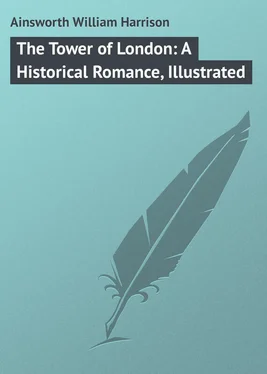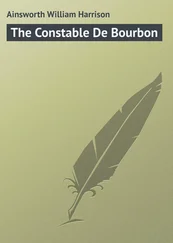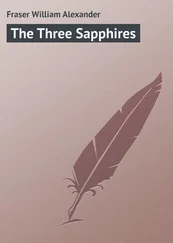William Ainsworth - The Tower of London - A Historical Romance, Illustrated
Здесь есть возможность читать онлайн «William Ainsworth - The Tower of London - A Historical Romance, Illustrated» — ознакомительный отрывок электронной книги совершенно бесплатно, а после прочтения отрывка купить полную версию. В некоторых случаях можно слушать аудио, скачать через торрент в формате fb2 и присутствует краткое содержание. ISBN: , Жанр: foreign_prose, на английском языке. Описание произведения, (предисловие) а так же отзывы посетителей доступны на портале библиотеки ЛибКат.
- Название:The Tower of London: A Historical Romance, Illustrated
- Автор:
- Жанр:
- Год:неизвестен
- ISBN:http://www.gutenberg.org/ebooks/49850
- Рейтинг книги:5 / 5. Голосов: 1
-
Избранное:Добавить в избранное
- Отзывы:
-
Ваша оценка:
- 100
- 1
- 2
- 3
- 4
- 5
The Tower of London: A Historical Romance, Illustrated: краткое содержание, описание и аннотация
Предлагаем к чтению аннотацию, описание, краткое содержание или предисловие (зависит от того, что написал сам автор книги «The Tower of London: A Historical Romance, Illustrated»). Если вы не нашли необходимую информацию о книге — напишите в комментариях, мы постараемся отыскать её.
The Tower of London: A Historical Romance, Illustrated — читать онлайн ознакомительный отрывок
Ниже представлен текст книги, разбитый по страницам. Система сохранения места последней прочитанной страницы, позволяет с удобством читать онлайн бесплатно книгу «The Tower of London: A Historical Romance, Illustrated», без необходимости каждый раз заново искать на чём Вы остановились. Поставьте закладку, и сможете в любой момент перейти на страницу, на которой закончили чтение.
Интервал:
Закладка:
Dame Placida Paston had a short plump (perhaps a little too plump, and yet it is difficult to conceive how that can well be,) figure; a round rosy face, the very picture of amiability and good humour; a smooth chin, dimpling cheeks, and the brightest and merriest black eyes imaginable. Her dress was neatness itself, and her dwelling as neat as her dress. With attractions like these, no wonder she captivated many a heart, and among others that of Magog, who had long nourished a secret passion for her, but could not muster courage to declare it – for, with a bluff and burly demeanour towards his own sex, the giant was as bashful as a shamefaced stripling in the presence of any of womankind.
With the tact peculiarly belonging to widows, Dame Placida had discovered the state of affairs, and perhaps being not altogether unwilling to discourage him, having accidentally met him on the Tower Green on the day in question, had invited him to visit her in the evening. It was this invitation which had so completely upset the love-sick giant. The same bashfulness that prevented him from making known his attachment to the object of it, kept him silent towards his brethren, as he feared to excite their ridicule.
On his arrival at her abode, Dame Placida received him with the utmost cordiality, and tried to engage him in conversation. But all without effect.
“I see how it is,” she thought; “there is nothing like a little strong liquor to unloose a man’s longue.” And she forthwith proceeded to a cupboard to draw a pot of ale. It was at this juncture that she was discovered by the observers outside.
Magog received the proffered jug, and fixing a tender look on the fair donor, pressed his huge hand to his heart, and drained it to the last drop. The widow took back the empty vessel, and smilingly inquired if he would have it replenished. The giant replied faintly in the negative, – so faintly, that she was about to return to the cupboard for a fresh supply, when Magog caught her hand, and flung himself on his knees before her. In this posture he was still considerably the taller of the two; but bending himself as near to the ground as possible, he was about to make his proposal in due form, when he was arrested by a tremendous peal of laughter from without, and, looking up, beheld Xit seated on the window-sill, while behind him appeared the grinning countenances of his brethren.
Ashamed and enraged at being thus detected, Magog sprang to his feet, and seizing Xit by the nape of the neck, would have inflicted some severe chastisement upon him, if Dame Placida had not interfered to prevent it. At her solicitation, the mannikin was released; and he no sooner found himself at liberty, than, throwing himself at her feet, he protested he was dying for her. Perhaps it might be from a certain love of teazing, inherent even in the best-tempered of her sex, or, perhaps, she thought such a course might induce Magog more fully to declare himself; but whatever motive influenced her, certain it is that Dame Placida appeared by no means displeased with her diminutive suitor, but suffered him, after a decent show of reluctance, to take her hand.
Thus encouraged, the dwarf was so elated, that springing upon a chair, he endeavoured to snatch a kiss. But the widow, having no idea of allowing such a liberty, gave him a smart box on the ear, which immediately brought him to the ground.
Notwithstanding this rebuff, Xit would have persevered, had not Magog, whose feelings were really interested, begun to appear seriously angry. Seeing this, he judged it prudent to desist, and contented himself with entreating the widow to declare which of the two she preferred. Dame Placida replied, that she must take a few hours to consider upon it, but invited them both to supper on the following evening, when she would deliver her answer. Having given a similar invitation to the two giants outside, she dismissed the whole party.
XIII. – OF THE STRATAGEM PRACTISED BY CUTHBERT CHOLMONDELEY ON THE JAILOR
Several days had now elapsed since Cholmondeley was thrown into the dungeon, and during that time he had been visited only at long intervals by Nightgall. To all his menaces, reproaches, and entreaties, the jailor turned a deaf ear. He smiled grimly as he set down the scanty provisions – a loaf and a pitcher of water – with which he supplied his captive; but he could not be induced to speak. When questioned about Cicely and upbraided with his perfidy, his countenance assumed an exulting expression which Cholmondeley found so intolerable that he never again repeated his inquiries. Left to himself, his whole time was passed in devising some means of escape. He tried, but ineffectually, to break his bonds, and at last, satisfied of its futility, gave up the attempt.
One night, he was disturbed by the horrible and heartrending shrieks of the female prisoner, who had contrived to gain access to his cell. There was something about this mysterious person that inspired him with unaccountable dread; and though he was satisfied she was a being of this world, the conviction did not serve to lessen his fears. After making the dungeon ring with her cries for some time, she became silent, and as he heard no sound and could distinguish nothing, he concluded she must have departed. Just then the unlocking of a distant door and a gleam of sickly light on the walls of the stone passage announced the approach of Nightgall, and the next moment he entered the cell. The light fell upon a crouching female figure in one corner. The jailor started; and his angry ejaculations caused the poor creature to raise her head.
Cholmondeley had never beheld anything so ghastly as her countenance, and he half doubted whether he did not look upon a tenant of the grave. Her eyes were sunken and lustreless; her cheeks thin and rigid, and covered with skin of that deadly paleness which is seen in plants deprived of light; her flesh shrunken to the bone, and her hands like those of a skeleton. But in spite of all this emaciation, there was something in her features that seemed to denote that she had once been beautiful, and her condition in life exalted. The terror she exhibited at the approach of the jailor proved the dreadful usage she had experienced. In answer to his savage ejaculations to her to follow him, she flung herself on her knees, and raised her hands in the most piteous supplication. Nothing moved by this, Nightgall was about to seize her and drag her away, when with a piercing scream she darted from him, and took refuge behind Cholmondeley.
“Save me! – save me from him!” she shrieked; “he will kill me.”
“Pshaw!” cried the jailor. “Come with me quietly, Alexia, and you shall have a warmer cell, and better food.”
“I will not go,” she replied. “I will not answer to that name. Give me my rightful title and I will follow you.”
“What is your title?” asked Cholmondeley, eagerly.
“Beware!” interposed Nightgall, raising his hand menacingly. “Beware!”
“Heed him not!” cried Cholmondeley; “he shall not harm you. Tell me how you are called?”
“I have forgotten,” replied the terrified woman, evasively. “I had another name once. But I am called Alexia now.”
“What has become of your child?” asked Cholmondeley.
“My child!” she echoed, with a frightful scream. “I have lost her in these dungeons. I sometimes see her before me running and clapping her little hands. Ah! there she is – coming towards us. She has long fair hair – light blue eyes – blue as the skies I shall never behold again. Do you not see her?”
“No,” replied Cholmondeley, trembling. “How is she named?”
“She died unbaptised,” replied the female. “But I meant to call her Angela. Ah! see! she answers to the name – she approaches. Angela! my child! – my child!” And the miserable creature extended her arms, and seemed to clasp a phantom to her bosom.
Читать дальшеИнтервал:
Закладка:
Похожие книги на «The Tower of London: A Historical Romance, Illustrated»
Представляем Вашему вниманию похожие книги на «The Tower of London: A Historical Romance, Illustrated» списком для выбора. Мы отобрали схожую по названию и смыслу литературу в надежде предоставить читателям больше вариантов отыскать новые, интересные, ещё непрочитанные произведения.
Обсуждение, отзывы о книге «The Tower of London: A Historical Romance, Illustrated» и просто собственные мнения читателей. Оставьте ваши комментарии, напишите, что Вы думаете о произведении, его смысле или главных героях. Укажите что конкретно понравилось, а что нет, и почему Вы так считаете.












